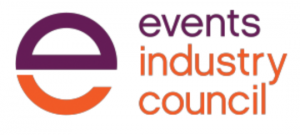Events Industry Council Releases Accepted Practices Guide For Meeting And Event Design
July 24, 2020
Guidance to help industry professionals rebuild trust and assess risk
As reported in the Global Economic Significance of Business Events study, the global business events industry and its workforce of 26 million generated an estimated $1.5 trillion USD in GDP, which would rank the sector as the 13th largest economy in the world.
COVID-19 has brought the industry to a standstill. Sector job loss in the millions, decreased travel, cancelled and postponed meetings and events, closed businesses and borders across the global events ecosystem have collectively disrupted the industry. There will be a long-lasting impact on economic recovery worldwide.
In response, the Events Industry Council, a global federation of more than 30 member organisations, formed the APEX COVID-19 Business Recovery Task Force. The task force’s work groups are focused on aggregating and curating accepted practices across the events ecosystem and providing a framework for recovery and resilience as the industry adapts. We are cognisant of both our present realities and the need to best prepare for our future through our ability to analyse and mitigate risk.
Today, the Events Industry Council issued the Meeting and Event Design Accepted Practices Guide. It is intended to serve as a resource and educational tool for industry professionals to utilise as they put the curated resources and materials into practice.
This guidance also is intended to be global in nature. The work will continue to evolve through regional workshops led by task force members, to ensure it is either applicable or customised to each region.
To rebuild trust that in-person meetings and events can happen safely, the guide provides these customisable tools:
- A meeting and event decision grid
- Guidelines and a code of conduct for pre-event, post-event and onsite
- Meeting and event success metrics (pre- and post-vaccine)
- Attendee communication considerations
- Resource guide
“We must, as individuals and organisations, take the responsibility to own the assessment and mitigation of risk, taking into account guidance from global, national, regional and local public health officials. If we do so consistently, and communicate these steps effectively, we will make considerable strides toward reestablishing trust. Trust with organisational decision-makers, event organisers, participants and all stakeholder groups is an essential element in the process of recovery and ensuring our future relevance. These materials represent a living workstream and as new information and knowledge is gathered, we will update this guidance so that trust is renewed and reinforced,” said Amy Calvert, CEO, Events Industry Council.
EIC will host a webinar on Friday, 24 July at 11 a.m. EDT to discuss the Meeting and Event Design Accepted Practices Guide. Additional guides, including one from the Hotel/Accommodations Health & Safety work stream, will be released in the coming weeks.
“In-person meetings, events, exhibitions, and trade shows came to a screeching halt in March,” said Meeting and Event Design work group member Cathy Schlosberg, Senior Vice President Marketing, PSAV. “While we have seen some very encouraging examples of events beginning to take place across the globe, we know that we need to continue to work to advocate our ability to create safe environments. Our colleagues want to understand and implement accepted practices that bring in-person meetings, events, exhibitions, and trade shows back to life. The guide EIC released today will help do that.”
“Included in the Accepted Practices Guide is a code of conduct, meant to serve as a tool for event organisers to engage all meeting participants in the health and safety of our events. Community buy-in by all participants at the event level serves to advocate for the well-being of our fellow global citizens and our industry,” said Meeting and Event Design work group member and APEX Commission Chair Allison Kinsley, CMM, CMP, CED, Chief Meeting Architect, Kinsley Meetings.
The APEX COVID-19 Business Recovery Task Force is led by Co-chairs Michael Dominguez, President and CEO, Associated Luxury Hotels International (ALHI), and Kristin Horstman, Senior Director, Strategic Events, Salesforce. With representation from across the many sectors and regions of the global events ecosystem, the APEX COVID-19 Business Recovery Task Force provides a voice in planning, preparing and participating in our recovery and our future as well as helping to amplify our story of economic and social impact as advocates for our industry.
The task force is following two parallel paths, and the resources and guidance materials represent living work streams. The first path focuses on the immediate need for accepted practices related to health and safety protocols, the support for our global workforce, as well as risk assessment and mitigation tools. The second path addresses the long-term need to examine adaptation and transformation to ensure our future and support sharing broadly the relevance and resiliency of our industry.
“The APEX COVID-19 Business Recovery Task Force was convened to serve the industry at one of, if not the most, trying times in our history. Representing the global and diverse cross section of industry sectors and regions, this team committed to this collaboration and to serving the industry and their peers by aggregating and curating essential insights to provide guidance in the near and long term,” added Calvert. “This work is grounded in our values of trust, equity, community and innovation, seeking to focus our efforts on health and safety, risk mitigation, workforce, innovations, adaptations and transformation, wellness and advocacy. Our values are firmly rooted in the common belief that our industry drives economic growth, builds communities, educates, and advocates for sustainable and socially just practices in support of our global economy.”









